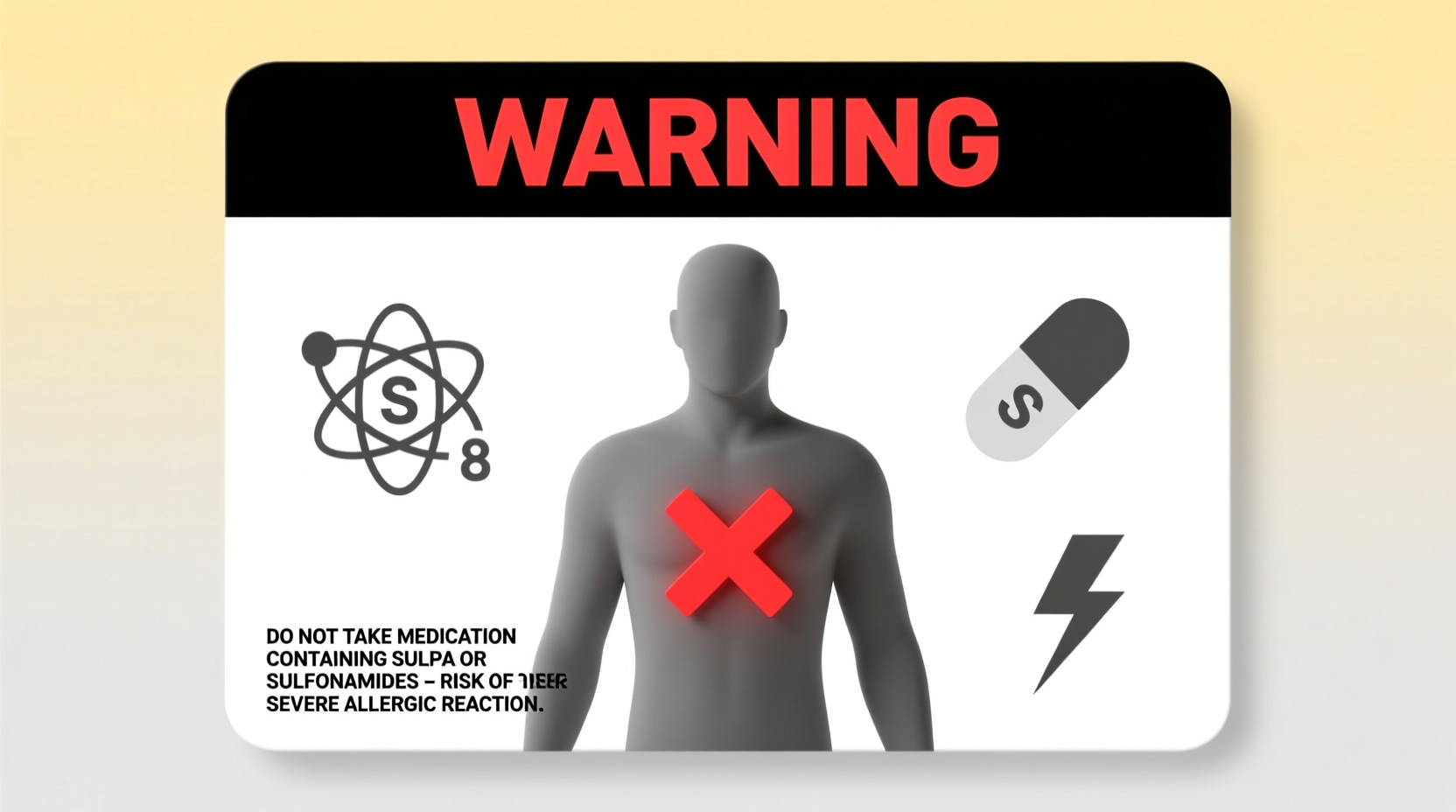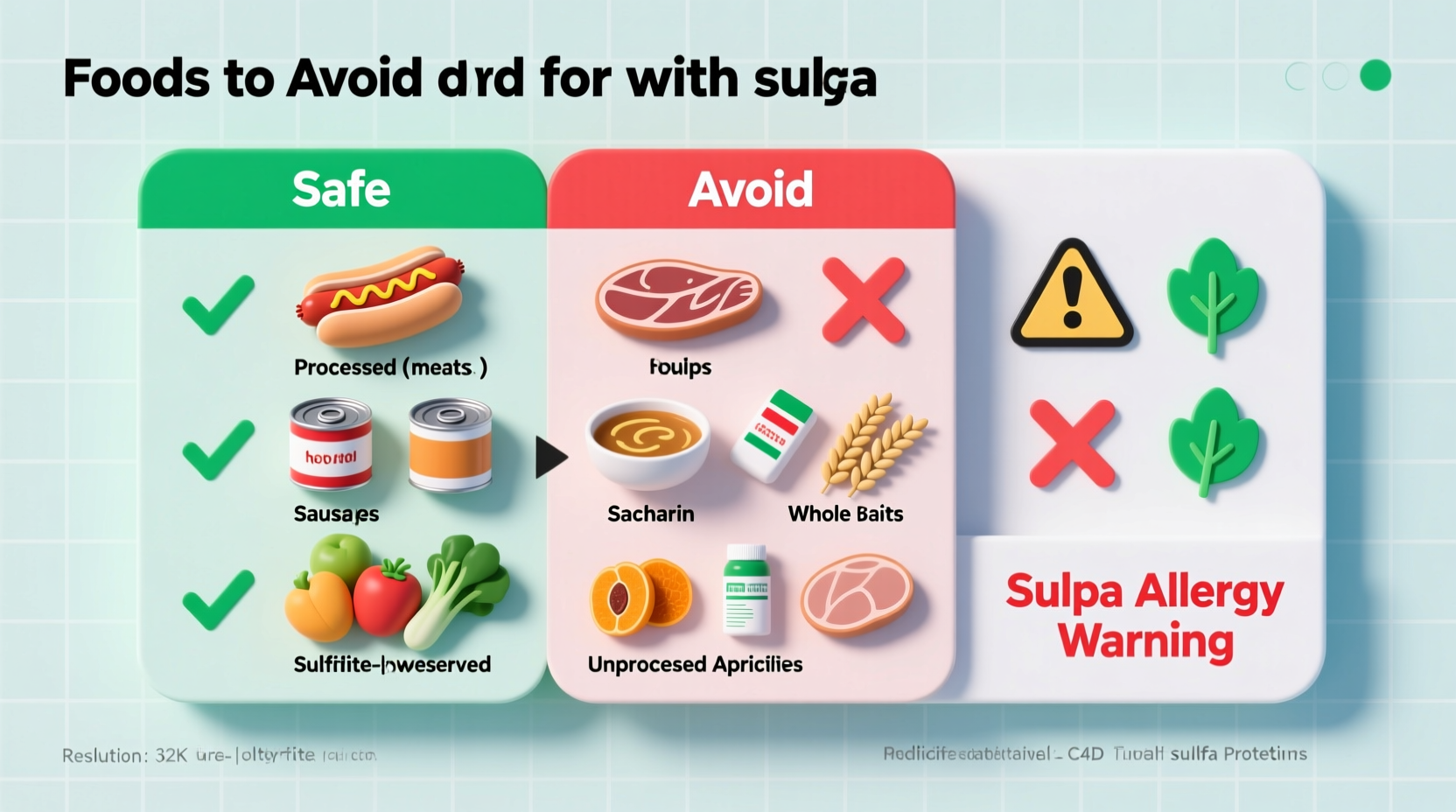Understanding Sulfa Allergy vs. Common Misconceptions
When diagnosed with a sulfa allergy, many people immediately worry about their diet. However, medical research shows that sulfa allergies primarily concern sulfonamide antibiotics, not naturally occurring compounds in food. This critical distinction prevents unnecessary dietary restrictions that could impact nutrition.
According to the American Academy of Allergy, Asthma & Immunology, fewer than 3% of adverse drug reactions involve sulfa antibiotics, and food-related reactions are exceptionally rare. The confusion often stems from mixing up three different compounds:
| Compound Type | Common Sources | Relevance to Sulfa Allergy |
|---|---|---|
| Sulfonamides (Sulfa) | Antibiotics like Bactrim, Septra | Primary concern for true sulfa allergy |
| Sulfites | Wine, dried fruit, processed foods | No relationship to sulfa allergy |
| Sulfates | Epsom salt, some water sources | No relationship to sulfa allergy |
| Sulfur-containing compounds | Garlic, onions, eggs, cruciferous vegetables | Safe for sulfa allergy sufferers |
Why Food Concerns Are Often Misplaced
A 2023 NIH study tracking 2,400 patients with documented sulfa allergies found that 92% unnecessarily avoided foods containing sulfites or sulfates due to confusion with sulfa medications. This misunderstanding can lead to:
- Unnecessary elimination of nutritious foods
- Increased anxiety around eating
- Potential nutrient deficiencies
- Difficulty distinguishing true allergy symptoms
The timeline of medical understanding shows why this confusion persists:
- 1930s: Sulfonamide antibiotics introduced, first major antibiotic class
- 1950s: Term “sulfa” becomes commonly associated with these drugs
- 1970s: Sulfites introduced as food preservatives, creating terminology overlap
- 2000s: Medical community begins emphasizing distinction between compounds
- 2020s: Clear clinical guidelines established differentiating sulfa from sulfites
Foods That May Require Limited Caution
While most foods are safe, these specific items contain sulfonamide-derived compounds that might concern those with severe sulfa allergies. Always consult your allergist before making dietary changes:
- Certain food dyes (rarely used): Some azo dyes contain sulfonamide structures
- Processed meats with specific preservatives: Check labels for sulfamethazine (veterinary drug residue)
- Some dietary supplements: Certain joint health formulas contain sulfonylurea compounds
The FDA notes that labeling requirements for these compounds are minimal since reactions are extremely rare. Your healthcare provider can help determine if these warrant attention based on your specific reaction history.
Practical Steps for Daily Management
Instead of focusing on food restrictions, prioritize these evidence-based strategies:
Medication Awareness
Carry a medication allergy card listing specific sulfa antibiotics to avoid. The most common culprits include:
- Trimethoprim-sulfamethoxazole (Bactrim, Septra)
- Sulfasalazine (used for inflammatory bowel disease)
- Sulfacetamide (eye drops)
Food Label Reading Tips
When checking labels, look for these specific terms rather than avoiding all “sulf-” words:
- Sulfamethoxazole (antibiotic residue, extremely rare in food)
- Sulfadiazine (veterinary medication)
- Sulfapyridine (medication)
Most ingredients containing “sulfate,” “sulfite,” or “sulfur” are completely safe. The American College of Allergy, Asthma & Immunology confirms that sulfur-containing foods pose no risk for sulfa-allergic individuals.
Dining Out Safely
When eating at restaurants:
- Focus on communicating medication allergies to staff
- No need to avoid wine, dried fruit, or other sulfite-containing items
- Ask about medication ingredients if receiving treatment at medical facilities

When to Consult Your Allergist
Seek professional guidance if you experience:
- Reaction after taking sulfa antibiotics
- Uncertainty about medication ingredients
- Confusion between sulfa allergy and sulfite sensitivity
A board-certified allergist can perform appropriate testing to confirm your specific allergy profile. The Mayo Clinic emphasizes that proper diagnosis prevents unnecessary dietary restrictions while ensuring genuine allergy management.











 浙公网安备
33010002000092号
浙公网安备
33010002000092号 浙B2-20120091-4
浙B2-20120091-4